In Toulouse, Airbus took advantage of a press summit to review the roadmap for its future hydrogen-powered aircraft. This announcement comes as a relief to another, announced in early February, when the European aircraft manufacturer was forced to delay its marketing objectives by five to ten years due to recent developments that were "slower than expected" in production and distribution.
New Airbus prototype
From 2040, at best, we should see Airbus launch a new generation of aircraft, powered solely by liquid hydrogen, in the category of aircraft with around 100 seats. But rather than six engines, as the aircraft manufacturer had conceived, there will be only four, positioned under the wings of a high-wing aircraft, the conceptual form of which was shown at the Airbus Summit. They will be 100% electric.
If the hydrogen-powered aircraft was able to go from six to four engines before it was even launched, it is primarily thanks to the increased power of its propellers. In two years, they went from 1.2 megawatts to 2 megawatts thanks to their fuel cell. For each pair of engines, a single tank of liquid hydrogen, which can be maintained at -253 degrees (20.28 kelvins), will also cool the fuel cell.
Avoiding “the Concorde of hydrogen”
“This concept will continue to be refined over the coming years, thanks to additional tests that will allow the technologies associated with storage and distribution of hydrogen, as well as propulsion systems," Airbus specified on Tuesday, March 25, from its Toulouse-Blagnac site. The day before, Airbus CEO Guillaume Faury declared that launching such technology today would create "the Concorde of hydrogen." He added: "To date, the technology cannot compete with conventional systems. We don't have the ecosystem, we would be wrong to believe that we are right too soon."
At his side, Guillaume Faury invited Bertrand Piccard, the founder of Solar Impulse, who flew around the world in a solar-powered plane between 2015 and 2016 (for 23 consecutive days). On this occasion, the two companies recalled their plan to embark on a new round-the-world trip aboard a hydrogen-powered aircraft, "Climate Impulse," in 2028, with the aim of showing that "solutions" exist in an "eco-depressed world" during an 8-day trip.
In the meantime, the aircraft manufacturer will work on certifying its next generation aircraft with 100% compatibility for SAF fuel, testing of which on the A380 resumed on March 15.
Asked about the next propulsion revolution at Airbus, the head of the Hydrogen division at Airbus, Gwen Llewellyn, said: "There will still be a need for SAF fuel when the hydrogen aircraft arrives, as it will not be able to meet the needs of long-haul flights." Karim Mokkadem, head of the Research and Technologies division for future Airbus commercial aircraft, added: "Hydrogen is nothing more than an improved SAF."
First test of an integrated system in 2027
Despite a lack of clear benchmarks on its new roadmap, Airbus stated at its Summit in Toulouse that it will test its entire integrated system in Munich in 2027, including all the components that will be found in the hydrogen-powered aircraft. The test will be carried out on the ground, a first step before a potential flight test.
Meanwhile, research continues in Grenoble, where Airbus is collaborating with Air Liquide Advanced Technologies to develop a large-scale "mock-up," including a liquid hydrogen tank, a refueling system, a propellant, and an industrial heat exchanger.
Taking advantage of superconductivity
The future of hydrogen aircraft at Airbus will involve other partnerships. "In the coming months", Arbus will announce a new collaboration, echoing the one signed in October 2024 with Toshiba for superconductor research.
Superconductivity, often mentioned for its ability to significantly reduce resistance and energy losses, is only possible at a temperature between 1 and 33 kelvins, depending on the materials (i.e. between -272 and -240°C). Thanks to the need to keep hydrogen in a liquid state at 20 kelvins, offering a superconducting electrical system would allow for a significant increase in engine efficiency with little effort.
We are both aware of the enormous potential of superconducting technologies to shape the future of aircraft and promote the decarbonization of the aviation industry," said Tsutomu Takeuchi, Director of Toshiba Energy Systems & Solutions Corporation, last October.

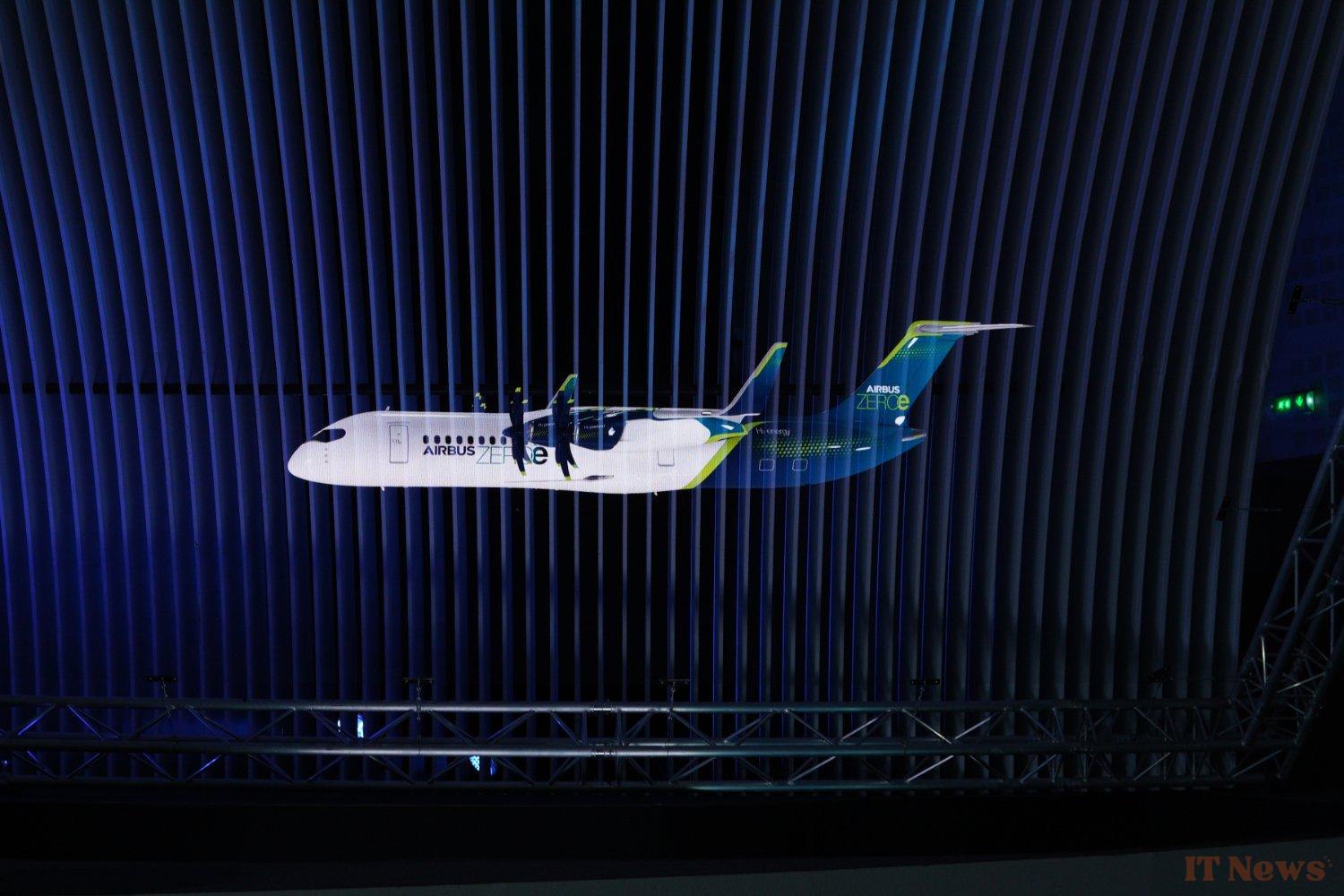
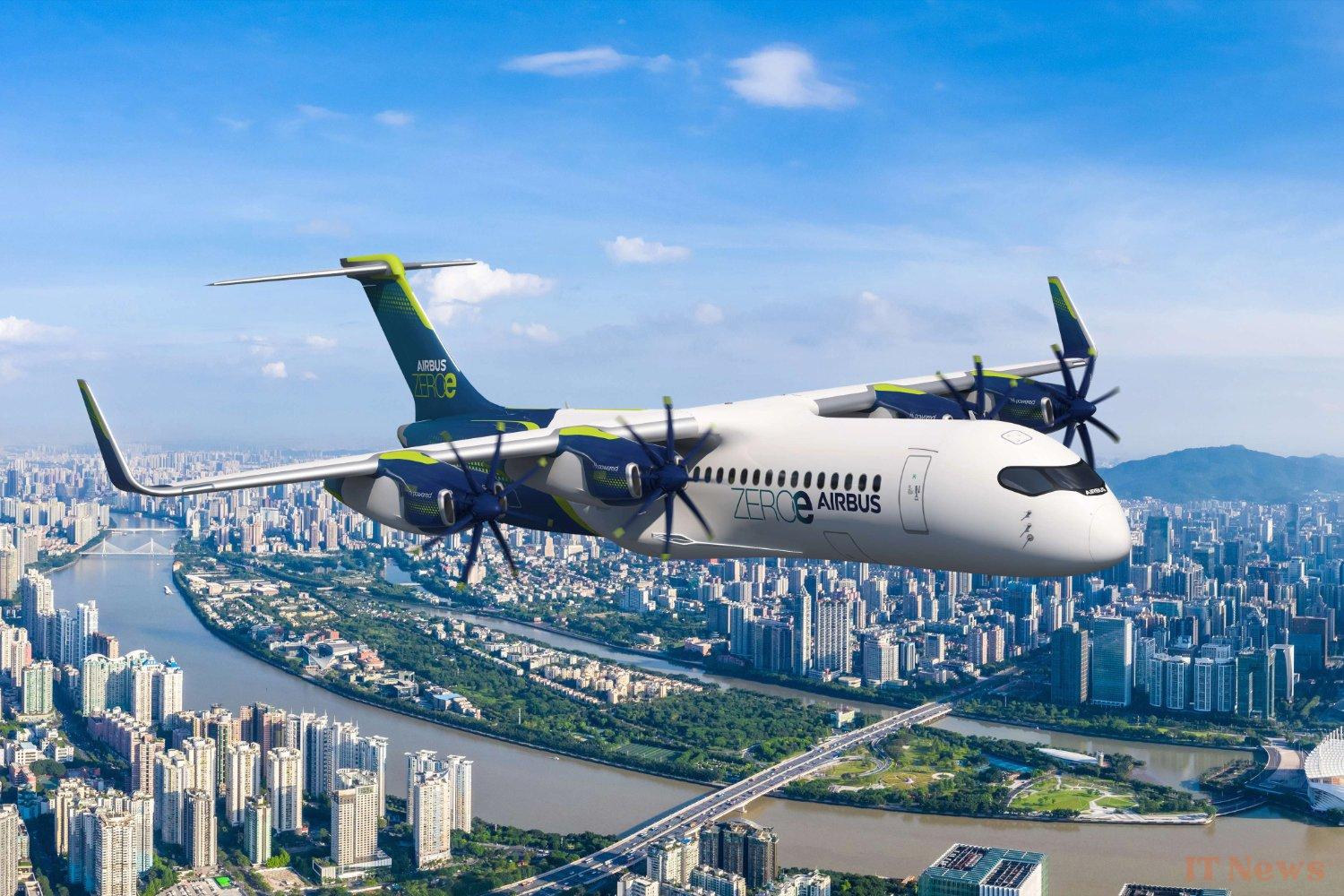
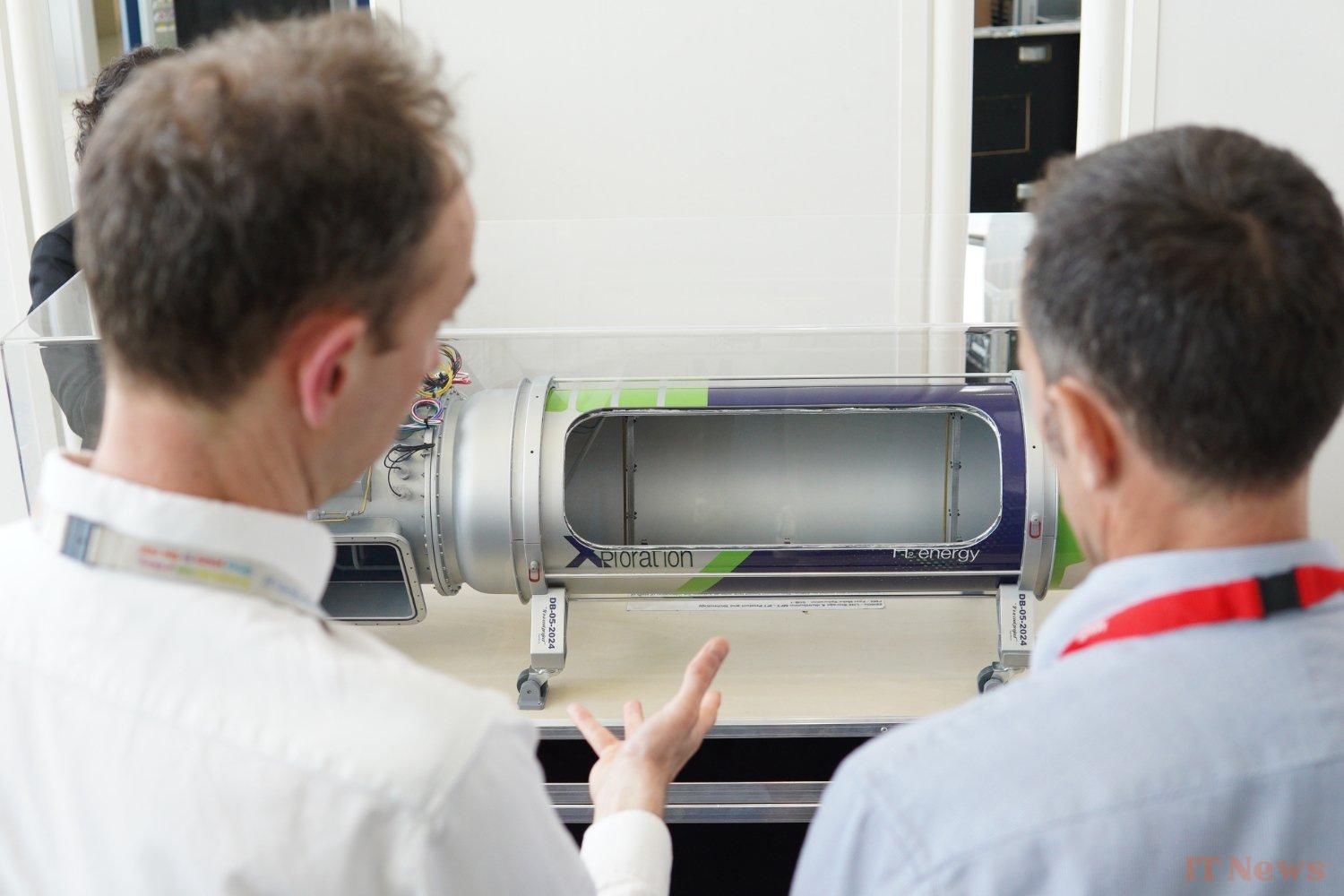
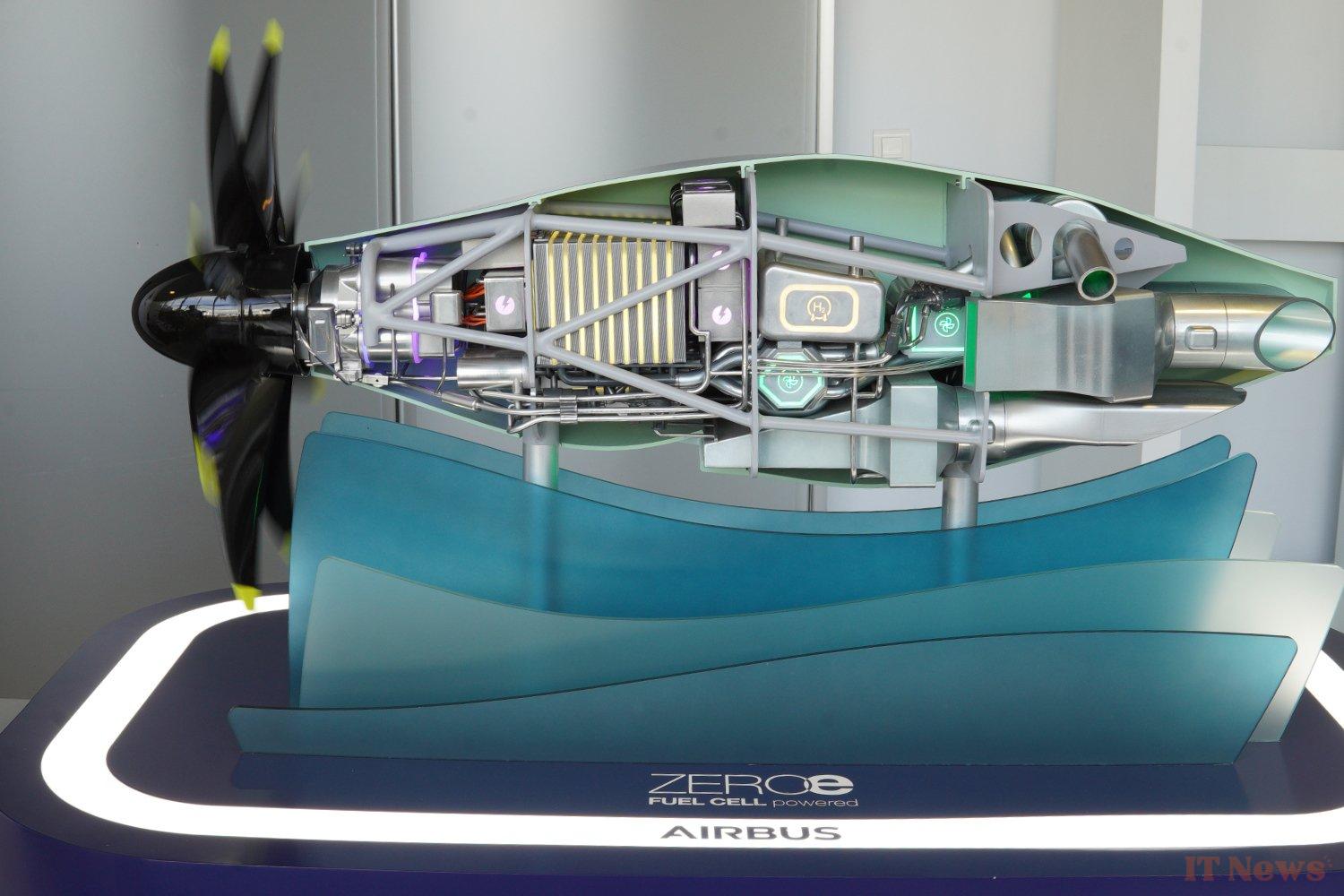
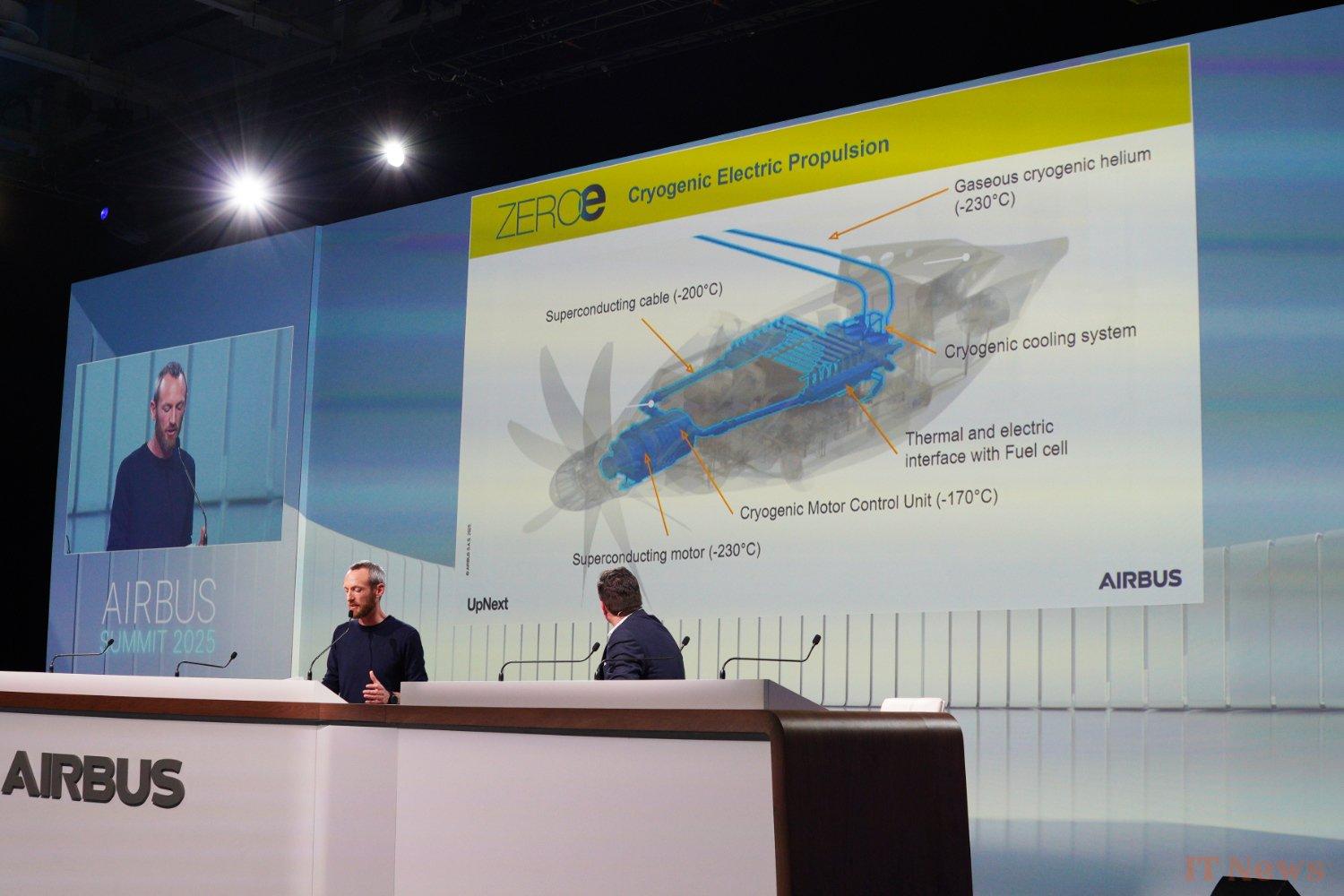

0 Comments